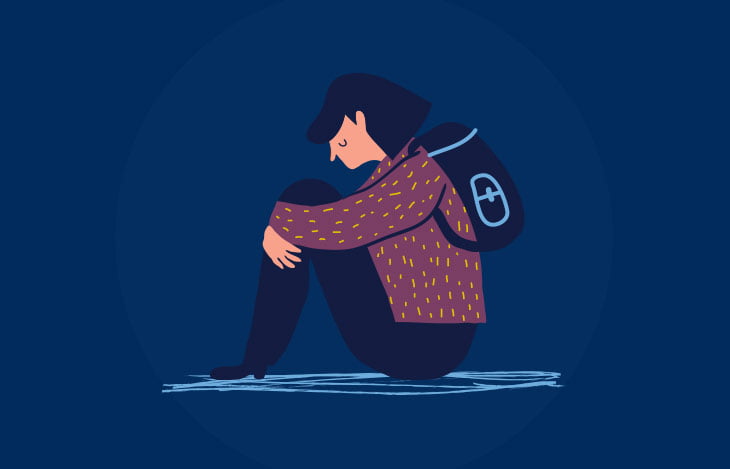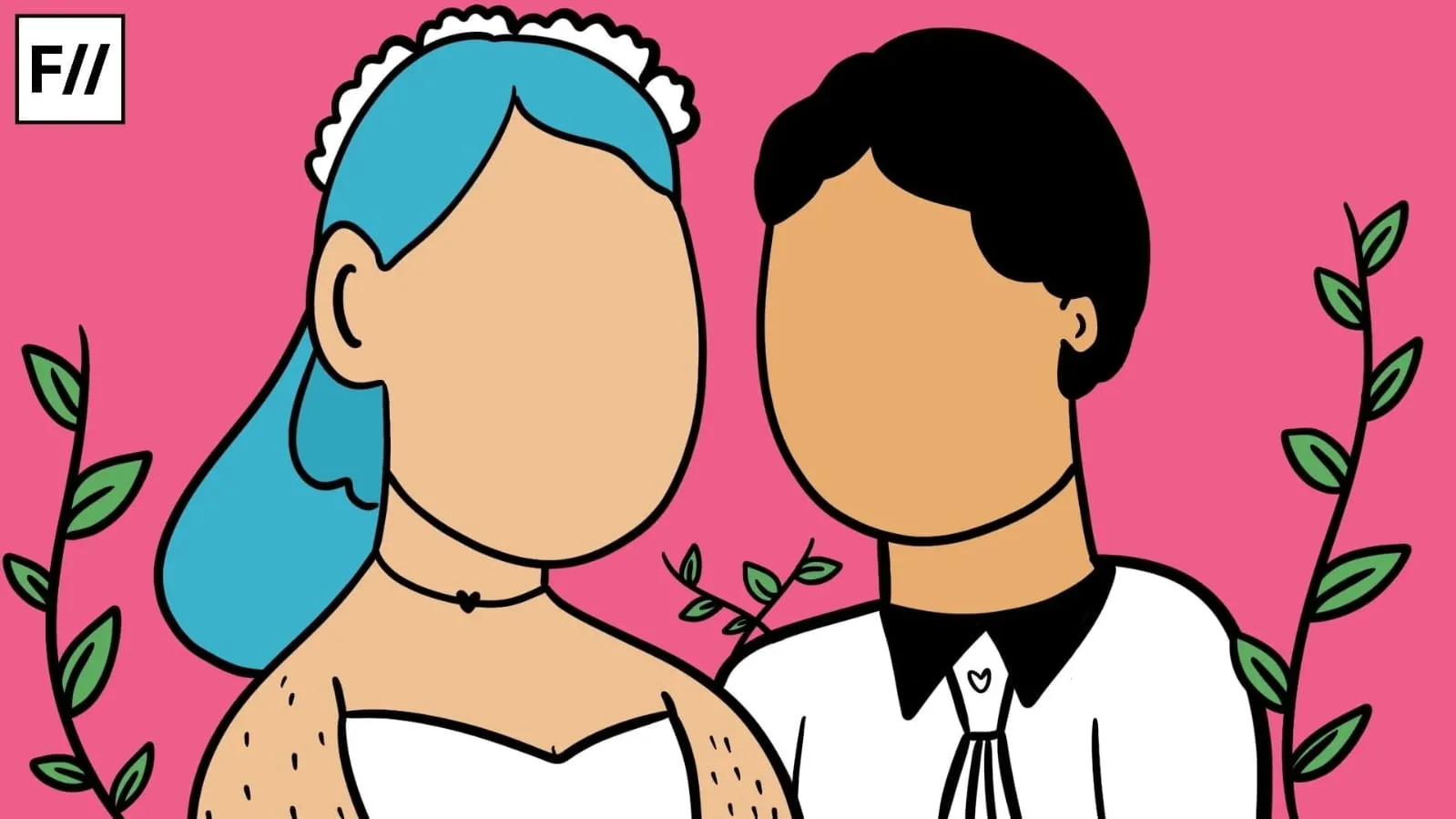When the lockdown protocols were enforced earlier this year, our freedom, routine and responsibilities within households were disrupted. Along with this, increased uncertainty, financial stress and burden of care have lowered our window of tolerance. For many, it has opened old wounds and led to persistent conflict at home. Children are forced to experience dysfunctional and strained family interactions, day in and day out, without the solace of distraction and distance.
There is a great degree of variability in how interactions and behaviours occur within homes and the pattern of these interactions form the core of our family dynamics. Families have a unique set of codes that affect the way each member thinks and relates to themselves, others and the world around them. Several factors including the nature of a parent’s relationship, personality of family members, events (divorce, death, unemployment), culture and ethnicity (including beliefs about gender roles), influence these dynamics. The list is endless, and it is of no surprise that growing up in an open, supportive environment is the exception, rather than the norm.
It’s important to disclaim that the idea of a perfect parent/family is a myth. Parents are human—flawed and experiencing their own concerns. Most children can deal with an occasional anger outburst as long as there is love and understanding to counter it. In ‘functional’ families, parents strive to create an environment in which everyone feels safe, heard, loved and respected. Households are often characterized by low conflict, high levels of support and open communication. This helps children navigate physical, emotional and social difficulties when they are young, and has lasting impacts as they transition into adulthood. Alternatively, growing up in a dysfunctional family can leave children emotionally scarred, and affect them throughout their lives. Hurtful family environments may include the following:
- Aggression: Behaviours typified by belittlement, domination, lies and control
- Limited affection: The absence of physical or verbal affirmations of love, empathy and time spent together
- Neglect: No attention paid to one another and discomfort around family members
- Addiction: Parents having compulsions relating to work, drugs, alcohol, sex and gambling
- Violence: Threat and use of physical and sexual abuse
For children, families constitute their entire reality. When they are young, parents are godlike; without them they would be unloved, unprotected, unhoused and unfed, living in a constant state of terror, knowing they will be unable to survive alone. Children are forced to accommodate and enable chaotic, unstable/unpredictable and unhealthy behaviours of parents.
Unfortunately, children don’t have the sophistication to understand and verbalize their experiences, differentiate between healthy and unhealthy behaviours or make sense of it all. They may interpret the situation to fit the belief of normalcy, further perpetuating the dysfunction (“No I wasn’t beaten, I was just spanked”; “My father isn’t violent, it’s just his way”). They may even accept responsibility for violence, to fit their reality. The more they do this, the greater is their likelihood of misinterpreting themselves and developing negative self-concepts (“I had it coming; I was not a good kid”).
In ‘functional’ families, parents strive to create an environment in which everyone feels safe, heard, loved and respected. Households are often characterized by low conflict, high levels of support and open communication. This helps children navigate physical, emotional and social difficulties when they are young, and has lasting impacts as they transition into adulthood. Alternatively, growing up in a dysfunctional family can leave children emotionally scarred, and affect them throughout their lives.
During their younger years, children form certain beliefs and carry them, unchallenged into adulthood. These beliefs are influenced by their parents’ actions and statements and are often internalized, for instance, ‘Children should respect their parents no matter what’, ‘It’s my way or the wrong way’ or ‘Children should be seen, not heard’. This forms the soil from which toxic behaviour grows and may be communicated directly or disguised as words of advice, expressed in terms of ‘shoulds’ , ‘oughts’ and ‘supposed tos’.
Spoken beliefs are tangible but can be wrestled with. For instance, a parental belief that divorce is wrong, might keep a daughter in a loveless marriage, however, this can be challenged. Unspoken beliefs are more complicated; they exist below our level of awareness and dictate basic assumptions of life. They may be implied by childhood experiences; for example, how your father treated your mother or how they treated you, encourages you to believe ideas such as, ‘Women are inferior to men’ or ‘Children should sacrifice themselves for their parents’.
Also read: Normalised Domestic Abuse And Stigmatised Mental Illness In My Family
As with beliefs there are unspoken rules, pulling invisible strings and demanding blind obedience: ‘Don’t lead your own life’, ‘Don’t be more successful than your father’, ‘Don’t be happier than your mother’ or ‘Don’t abandon me’. Loyalty to our family binds us to these beliefs and rules. There may be a marked gap between parents’ expectations/demands and what children want for themselves. Unfortunately, our unconscious pressure to obey almost always overshadows our conscious needs and desires, and leads to self-destructive and defeating behaviour.
There is variability in dysfunctional familial interactions; and in the kinds, severity and regularity of their dysfunction. Children may experience the following:
- Be forced to take sides during parental conflict,
- Experience ‘reality shifting’ (what is said contradicts what is happening),
- Be criticized or ignored for their feelings and thoughts,
- Have parents who are inappropriately intrusive/involved or distant/uninvolved,
- Have excessive demands placed on their time, friends or behaviours; conversely, receive no guidelines or structure,
- Experience rejection or preferential treatment,
- Be encouraged to use alcohol/drugs, and/or
- Be beaten.
Abuse and neglect affect the child’s ability to trust the world, others and themselves. Additionally, they grow up without a frame of reference for what is normal and healthy. They may develop traits that they have to struggle throughout their adult lives, and the effects are many. They may not know how to live without chaos and conflict (this becomes a lifestyle pattern) and get bored easily. Children are robbed off of their childhood and have to “grow up too fast”. As a result, they are disconnected from their needs and face difficulty asking for help.
Children, who were constantly ridiculed, grow up to judge themselves harshly, lie and constantly seek approval and affirmation. Children may fear abandonment, believe they are unlovable/not good enough and feel lonely/ misunderstood. As adults, they face difficulty with forming professional, social and romantic bonds, and are viewed as submissive, controlling, overwhelming or even detached in relationships. To numb their feelings, they may abuse drugs or alcohol and engage in other risky behaviours (rash driving, unsafe sex). Perhaps most serious of all, these individuals continue the cycle by developing their own parenting problems and reinforcing the dysfunctional dynamic.
Children, who were constantly ridiculed, grow up to judge themselves harshly, lie and constantly seek approval and affirmation. Children may fear abandonment, believe they are unlovable/not good enough and feel lonely/misunderstood. As adults, they face difficulty with forming professional, social and romantic bonds, and are viewed as submissive, controlling, overwhelming or even detached in relationships. To numb their feelings, they may abuse drugs or alcohol and engage in other risky behaviours (rash driving, unsafe sex).
Also read: My Experience Of Discussing Childhood Trauma With Family
Perhaps most serious of all, these individuals continue the cycle by developing their own parenting problems and reinforcing the dysfunctional dynamic. Being aware of the dysfunctional patterns of our past and how they affect how we think and act in the present is the critical first step.
- Name painful or difficult childhood experiences
- Recognize you have power over your life
- Identify behaviours and beliefs you would like to change
- Be assertive, set boundaries and practice non-attachment
- Find a support network
- Seek psychological help
For parents,
- Heal from your own trauma
- Be kind, honest and open-minded, and listen
- Create an environment of respect, safety and privacy
- Model healthy behaviour and practice accountability
- Give clear guidelines and factual information
- Provide an apology
- Be gentle with teasing, sarcasm etc.
- Allow children to change and grow
- Enforce rules that guide behavior but do not regulate one’s emotional and intellectual life
- Spend time together
- Ask for help
Rhea Mathews is a mental health researcher, working for an NGO called Sangath in New Delhi. She also practices as a counselling psychologist and works towards building safe spaces for people to express their needs, desires and concerns. In her time away from work, she plays sports, reads and journals. You can contact her on rheamathews28@gmail.com.
Featured Image Source: King University




